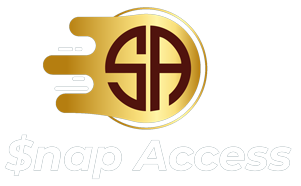- Janet Yellen, the former Federal Reserve chair and secretary of the U.S. Treasury, called President Donald Trump’s tariffs “misguided” and “unclear.” She laid out the problems they pose for the Federal Reserve: Tariffs could fuel inflation and induce a slowdown.
Janet Yellen is not in favor of the president’s tariffs. The former Fed chair and Treasury secretary called the tariffs “misguided” and “the objectives unclear.”
“We’re in a world of tremendous uncertainty,” she said Monday on Bloomberg Television.
In early April, President Donald Trump announced a sweeping reciprocal tariff regime that sent the stock market tumbling and led to chaos in the bond market. He later pressed pause to make deals, and the stock market rebounded. It may have hit its bottom, but there is no way to tell for certain. After all, once the 90-day grace period is over, “we could be back in the same place in early July,” LPL Financial strategists wrote in a research note released Monday.
Still, Trump placed a 10% blanket tariff on other countries, and taxed China more. China has since retaliated. Trade was all but shut down between the two countries until the administration announced an exemption on things such as smartphones, computers, and semiconductors. It is unclear how long that’ll last; the president said afterward that no one was off the tariff hook, and his Commerce Secretary Howard Lutnick warned that duties were coming for technology.
Even so, things have calmed. Some recession calls were pulled, but not all. “We would be lucky to skirt a recession,” Yellen said. Others, such as Bridgewater Associates founder Ray Dalio and Moody’s chief economist Mark Zandi, have also warned a recession could be likely.
Inflation expectations are soaring and consumer sentiment is plummeting. That could result in a decline in consumer spending and business investment—a slowdown in economic activity. The central bank is in wait-and-see mode. It’s keeping an eye on what it believes could be tariff-induced inflation rather than continuing to cut interest rates. But inflation is only one part of its dual mandate, which consists of stable prices and maximum employment. Declining business spending tends to go hand in hand with rising unemployment. Therefore, it could push the central bank to make a move and cut interest rates.
“If the Fed sees a weakening in the economy, unemployment is rising, we’ve fallen into a recession, that will create a good reason to cut rates,” Yellen explained. “But whether or not they’ll feel comfortable doing so depends on what happens on the inflation side.”
Yellen, similar to her successor, Fed Chair Jerome Powell, appears to believe tariffs could be a one-time shock to prices. That, however, does not account for things like workers negotiating higher wages to offset costlier prices or more tariffs later, she said. The tariffs on China alone could pose a substantial burden to households and businesses, Yellen believes, calling the escalating trade war “legitimately damaging to the U.S. economy.” Both examples could result in ongoing inflation, a problem for the Fed that would keep it from cutting rates.
Mohamed El-Erian, president of Queens’ College at the University of Cambridge, recently wrote that Powell’s Fed might be “one of the unluckiest” ever.
This story was originally featured on Fortune.com

